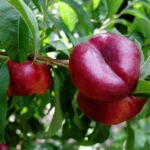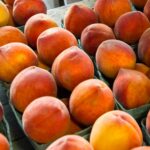Aussie researchers discover rapid method for sterile fruit fly production

Scientists from Australia's Macquarie University have found a faster way to release sterile male-only Queensland fruit flies (Qflies), in a development that may have wide-reaching implications for pest management and eradication efforts. 
As part of the AUD$45 million (US$36 million) SITPlus partnership, researchers found they could significantly increased production and reduce costs by rearing up to 100 million sterile Qflies each week at a dedicated facility in Port Augusta, South Australia.
Professor Phil Taylor said the key to accelerating the production of sterile flies was “asking the flies what nutrients they need and what they want to eat”.
"What we have done is apply principles from nutritional biology to develop and test multiple varieties of a gel-based substance, filled with foods the flies love, plus vitamins and minerals," he said in a release.
“By understanding the real biological needs of developing larvae we can tailor a diet to closely match those needs, and this has resulted in a tripling of production, more uniform development, and higher quality flies, all at lower cost, compared to using traditional fly diets.”
“This discovery is incredibly valuable. We have received calls from some of the largest fruit fly rearing facilities in the world asking about our research findings as this could have major benefits for the world’s production of sterile flies and other insects.”
Professor Taylor said the globe’s leading sterile insect technique research centers and fruit fly factories were keenly following the research to help inform their combined production of billions of factory-reared sterile flies each week.
Hort Innovation chief executive John Lloyd said the discovery presented a game changer for fruit fly management.
“This research is a major win for Australian Queensland Fruit Fly management,” he said.
“Qfly is a serious pest in some of our key growing regions, affecting the quality of the fruit and vegetables we eat and costing the sector $300 million in lost markets.
“The next step to apply this technique at the new, state-of-the-art sterile Qfly rearing facility in Port Augusta, which is on track to begin fly release logistics testing in sample areas by 2019.”
Currently, scientists around the country are working collaboratively across a host of Qfly-focused projects as part of the SITPlus partnership. Areas of focus include everything from developing the most handsome, irresistible sterile male Qfly to attract females to preparing communities for the future release of the flies.













































